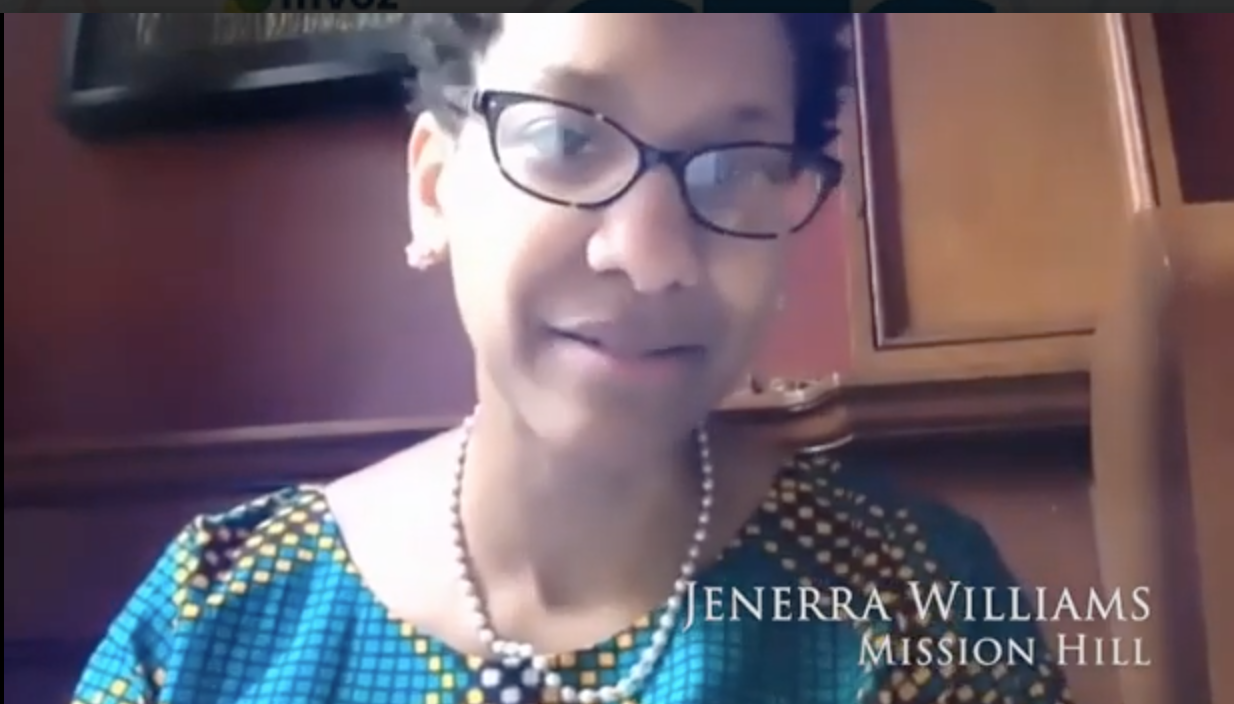Over de strijd voor gelijke kansen: Equity gaat over meer dan 'achterstand' of 'achterstelling'
13 september 2021
Door de populariteit van de tv-documentaire serie Klassen en de informatie vanuit de Inspectie van het Onderwijs weet iedere betrokkene dat ongelijkheid in ons onderwijs een serieus thema is. In de Verenigde Staten - in het bijzonder in The Essential Schools - draait het dan om equity. Dat begrip is lastig te vertalen, maar gaat over meer dan 'achterstand' of over 'achterstelling'. In deze twee video-opnames - gemaakt tijdens het online conferentie in het voorjaar - komen twee schoolleiders aan het woord. Zij vertellen wat zij onder equity verstaan en hoe dat vorm krijgt op hun school.
 Anne R. Clark is headmaster of The Boston Arts Academy en Jenerra Williams, co-director van Mission Hill. Op uitnodiging van SAAM*, de Leerschool en stichting NIVOZ waren zij te gast op de (digitale) conferentie van ConnectedWithCES. De opnames - die elk een half uur diuren - zijn gemaakt op 7 april 2021.
Anne R. Clark is headmaster of The Boston Arts Academy en Jenerra Williams, co-director van Mission Hill. Op uitnodiging van SAAM*, de Leerschool en stichting NIVOZ waren zij te gast op de (digitale) conferentie van ConnectedWithCES. De opnames - die elk een half uur diuren - zijn gemaakt op 7 april 2021.
Hieronder wat uitspraken die we eruit hebben gelicht.
 Anne: “Equity at Boston Arts Academy (BAA) means providing students with what they need to achieve a desired goal (that goal could be a specific class goal, it could be graduation, it could be a personal artistic goal). At BAA we address equity with five core beliefs:
Anne: “Equity at Boston Arts Academy (BAA) means providing students with what they need to achieve a desired goal (that goal could be a specific class goal, it could be graduation, it could be a personal artistic goal). At BAA we address equity with five core beliefs:
1. We know that all students have different strengths and need different supports. Equity means giving students the personalized supports they need. At BAA we personalize our approach to education as much as possible, and I will be talking about how we do that.
2. We believe that we must focus our resources on the students with the highest needs first. I will be talking about how we do that.
3. We believe that true equity means including everyone's voice in the conversation about what is needed...including students. I will be talking about how we include student voices in our equity conversations.
4. We believe that equity is not just a conversation about what happens without our school. It's also a conversation about what's going on in our city, our country, and our world. I will be talking about how we have had community conversations about Covid-19 and Black Lives Matter.
5. We believe that artists have a special role in equity conversations. Artists have always been the people in society who point out important truths, make people think and feel, and advocate for change. I will be talking about how we support our students to be artists activists and the specific work our students have done in response to the Black Lives Matter movement.
 Jenerra: Equity is about stories of a School in Transformation. In a school community, equity takes many forms - equity in the classroom, equity among staff, equity of family voice, equity in decision making and so much more. Equity is an ongoing journey that must be intentionally worked on. How does a school keep equity at the forefront of its community consciousness? Through storytelling, you will get a look into the work of equity at Mission Hill School. You will hear stories of success and failure. You will hear about initiatives, protocols, conferences and conversations that have helped us move the work of equity forward in our school.
Jenerra: Equity is about stories of a School in Transformation. In a school community, equity takes many forms - equity in the classroom, equity among staff, equity of family voice, equity in decision making and so much more. Equity is an ongoing journey that must be intentionally worked on. How does a school keep equity at the forefront of its community consciousness? Through storytelling, you will get a look into the work of equity at Mission Hill School. You will hear stories of success and failure. You will hear about initiatives, protocols, conferences and conversations that have helped us move the work of equity forward in our school.
Anne: https://youtu.be/bjztFUQpBEU
Jenerra: https://youtu.be/uLG5VFnnp6g


Reacties